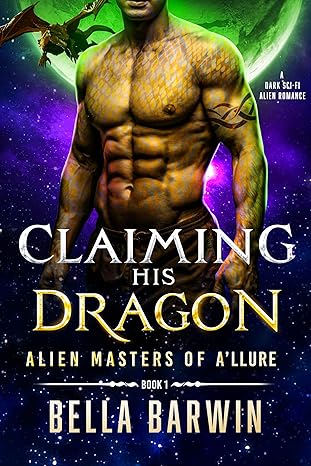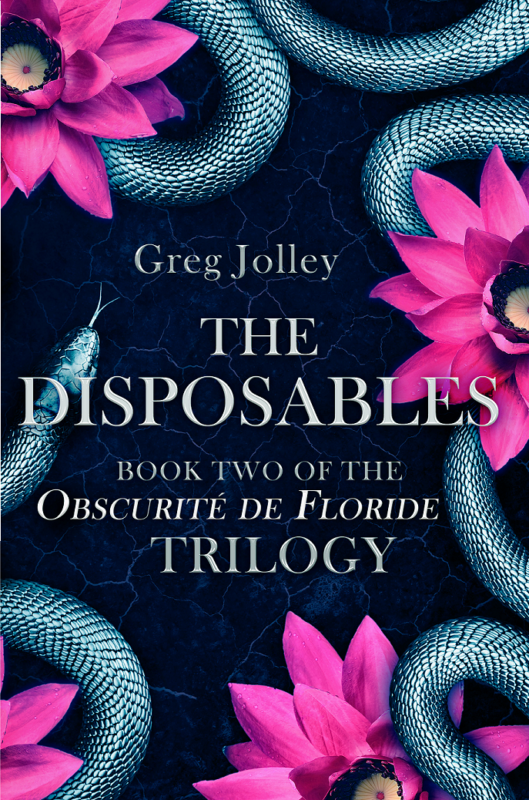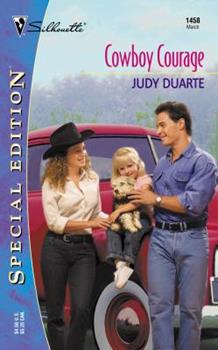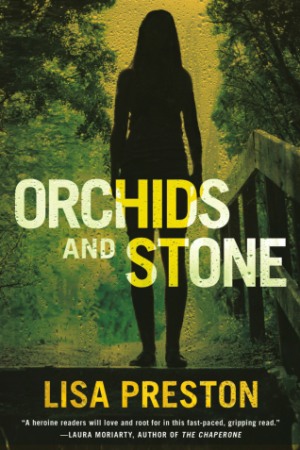Happy Happy Holidays
December 25, 2020 by marianne h donley in category Apples & Oranges by Marianne H. Donley tagged as 1950s, Holiday Music, holidays, Janet Elizabeth Lynn, Will Zeilinger
Happy Holidays from everyone at A Slice of Orange. We hope you day is calm, stress, and drama free.
To help with that, please enjoy this repeat column Janet Lynn and Will Zeilinger wrote for the 2018 Holidays.
Vintage 1950s Holiday Music
by
Janet Elizabeth Lynn
&
Will Zeilinger
I thought it would be nice to listen to some of the music that we still hear during the Christmas Holidays. I’ve included the links for your “waltz down memory lane”. Here are the top ten Christmas hits in the1950s.
(In chronological order of release)
 (There’s No Place Like) Home for the Holidays
(There’s No Place Like) Home for the Holidays
Home for the Holidays was written by Al Stillman and Robert Allen. It was a hit in 1955, but has also been recorded by numerous other artists. Listen on YouTube
 I Heard the Bells on Christmas Day
I Heard the Bells on Christmas Day
In 1956, Bing Crosby’s version was released as a single. Longfellow’s poem resulted when his personal peace was shaken. His second wife of 18 years was tragically burned in a fire, leaving him a widower of six children. Soon after, Longfellow’s oldest son, Charles Appleton Longfellow, joined the Union Army, he was severely wounded in the battle. He wrote the poem December,1863. The lyrics were by Johnny Marks and John Baptiste Calkin. Listen on YouTube
 Nuttin’ for Christmas
Nuttin’ for Christmas
Also known as “Nothing for Christmas,” Nuttin’ for Christmas was a novelty Christmas song written by Sid Tepper and Roy C. Bennett. It became a hit during the 1955 Christmas season when it appeared in Billboard’s pop charts by five different artists. The highest-charting of the five recordings was released by Art Mooney and His Orchestra, with six-year-old Barry Gordon as lead vocalist. Listen on YouTube
 Mary’s Boy Child
Mary’s Boy Child
Mary’s Boy Child a 1956 Christmas song, written by Jester Hairston. It is widely performed as a Christmas carol. Harry Belafonte heard the song being performed by a choir and sought permission to record it. It was recorded for his album An Evening with Belafonte. Listen on YouTube
 Jingle Bell Rock
Jingle Bell Rock
The song was written and performed by Bobby Helms in 1957 and has received frequent airplay during every Christmas season since. The song has hit the Billboard charts a record six times since its original release. Listen on YouTube
 Blue Christmas
Blue Christmas
A Blue Christmas was written by Billy Hayes and Jay W. Johnson and most famously performed by Elvis Presley. Elvis Presley cemented the status of Blue Christmas as a rock-and-roll holiday classic by recording it for his 1957 LP Elvis’ Christmas Album. Listen on YouTube
 Run Rudolph Run
Run Rudolph Run
Run Rudolph Run was written by Johnny Marks and Marvin Brodie. The song was first recorded by Berry in 1958 released as a single. Listen on YouTube
 Rockin’ Around the Christmas Tree
Rockin’ Around the Christmas Tree
Written by Johnny Marks and recorded by Brenda Lee in 1958, Rocking Around the Christmas Tree was a rockabilly/rock-and-roll flavored Christmas tune. While it was ignored in its first two seasons, the song hit #16 on the Billboard pop chart during the Christmas season of 1960. Eight million copies were sold the first thirty years. Listen on YouTube
 The Chipmunk Song
The Chipmunk Song
The Chipmunk Song (Christmas Don’t Be Late) is a Christmas song written by Ross Bagdasarian Sr. (a.k.a. David Seville) in 1958. Bagdasarian sang and recorded the song, varying the tape speeds to produce high-pitched “chipmunk” voices for the chipmunks: Alvin, Simon, and Theodore. Listen on YouTube
 The Little Drummer Boy
The Little Drummer Boy
This song was originally called Carol of the Drums, a Czech folksong which Katherine Davis translated to English in 1941. When the Twentieth-Century Fox Records label contracted Simeone to make a Christmas album in 1958, he assembled a group he called The Harry Simeone Chorale and searched for recording material. Simeone changed the title to The Little Drummer Boy. Listen on YouTube
Flashback to 1960s by Will Zeilinger and Janet Elizabeth Lynn
October 3, 2020 by Janet Elizabeth Lynn and Will Zeilinger in category Partners in Crime by Janet Elizabeth Lynn & Will Zeilinger tagged as baby boomers, flower children, Hippies, Janet Elizabeth Lynn, The 60s, the Pepsi Generation, Will Zeilinger
Flashback to the 60s Rickie Tickie Stickies

Rickie Tickie Stickies, despite their long association with hippies and flower power, were actually a creation of ad man Don Kracke in 1967. These reusable plastic flower decals adorned many a Volkswagen, hippie bus, and girls’ bedrooms. By 1968, some 90 million had been sold. Literally, hundreds of cars had the bright-colored daisy stickers plastered all over them.

Hippies
Even if you are a Millennial, you’ve probably heard about the hippie movement from your parents or grandparents. It grew out of the “Baby Boomer “ or “Pepsi Generation,” and was one of the biggest and most influential cultural movements of the 20th century. Established in the mid-60s, the hippie generation promoted peace, love, and unity. It was passionately against the Vietnam War, consumerism, and materialism. The movement was preceded by the Beatniks, the intellectual genesis of the mid-1950s to early 1960s counter-culture. Christopher Kiely wrote, “Hippies were the romanticized mass media-fueled movement of the late 1960s. Larger in size but stripped of much of its intellectual counter-culture firepower.

Flower Children
Even so, the hippie culture was well represented in music, movies, and arts, and had its own style of living, fashion, and slang. Ironically, the American urge to turn everything into a commercial success was already at work on the symbolism of the “non-commercial” counter-culture movement. Brightly colored abstracted daisies that symbolized the hippies or “flower children” had become a worldwide craze…and fifty years later, they have never really entirely gone out of style. Take a look at the Internet, and you can find daisy stickers or genuine “Rickie Tickie Stickies.”
The Skylar Drake Series
Chatting with Authors
Janet and Will have a brand new YouTube channel, Chatting with Authors where they do casual thirty minute Zoom interviews with a variety of authors. Below is their recent video with author Linda O. Johnston.
There will be a new authors featured each Friday. Check out Chatting with Authors for more interviews.
Vintage 1960s Automobiles: The Chevrolet Corvair by Will Zeilinger
February 3, 2020 by Janet Elizabeth Lynn and Will Zeilinger in category Partners in Crime by Janet Elizabeth Lynn & Will Zeilinger tagged as 1960s, Car, history, Janet Elizabeth Lynn, Vintage, Will Zeilinger
Manufactured by Chevrolet for model years 1960–1969, is still the only American-designed, mass-produced passenger car with a rear-mounted, air-cooled engine.
Initially, the innovative Corvair was manufactured and marketed as a 4-door sedan.
The compact Chevrolet Corvair was designed to compete with Volkswagens in the US market.

The 1960 Corvair went on sale on October 2, 1959, and was the first American compact sedan with a rear-mounted, air-cooled engine, unit-body construction, three-across seating, and the availability of an automatic transmission. Only four-door sedans were available at first, then came the 2-door coupe, convertible, 4-door station wagon, passenger van, commercial van, and pickup truck body styles.
Though inspired by Volkswagen’s four-cylinder engine, Chevrolet engineers used Porsche engines as a guide.
To stay competitive with the VW Beetle, the new Ford Falcon, and Plymouth Valiant, Chevrolet chose to cut corners right where it showed: on the interior. The basemodel 500 was particularly drab. Everything inside was gray, both the fabric and vinyl upholstery and black rubber floor mats. The 700 models came with three interior colors from which to choose. Extra-cost options on both the 700 and 500 models includedthings we take for granted today, like sun visors for both driver and passenger, armrests, or a cigarette lighter.
The Corvair sales took a significant upturn when the Monza coupe debuted at the 1960 Chicago Auto Show.

Though the Monza would rewrite what everyone’s idea of a Corvair was an alternative to the typical front-engined American family cars of the period.
The death knell for the Corvair came when Ralph Nader’s 1965 book “Unsafe at Any Speed” claimed that the car’s design that incorporated swing-axle suspension created a far greater risk of the vehicle rolling, which he described as “the one-car accident.”

Even though the suspension had been redesigned for much better handling and safety, the damage was done. Nader’s book became a best-seller, but in the consumer’s mind, the reputation of the Corvair was tarnished forever. Chevrolet ceased production of the Corvair with the 1969 model.
The Skylar Drake Mysteries
0 0 Read more
Plagiarizing One’s Self by Janet Elizabeth Lynn
November 3, 2019 by Janet Elizabeth Lynn and Will Zeilinger in category Partners in Crime by Janet Elizabeth Lynn & Will Zeilinger tagged as hardboiled mysteries, Janet Elizabeth Lynn, Skylar Drake Mysteries, Will Zeilinger, writing
(Hey it can happen!)
My husband Will Zeilinger and I co-write the Skylar Drake Murder Mysteries, a hardboiled detective series that takes the reader to 1950s Los Angeles and other areas of the west. GAME TOWN is the fifth and final book of the series.
Nothing strikes fear in an author’s heart more than plagiarizing one’s self. Especially when writing a series. This fear turns into terror when there are two people writing multiple books or a series. Plagiarizing might include duplicating a name, scene, dialogue or even a character. This is a big no-no.
What’s more frustrating is remembering who is related to whom, who’s married to who, who’s kids or pet belongs to which family, and most of all who’s in a relationship with who. When writing multiple books or series, this can become mind boggling.
Will and I made the mistake of plagiarizing a name we used three books earlier and nothing can be more embarrassing than when a reader or fan brings it to your attention on Goodreads! We had to figure out a way to keep this from happening … again.
We decided to use a family/genealogy chart to plot out who is who, locations, plots and subplots and 2-3-word descriptions.
During our research, we found various styles of family charts. We tried several styles, the third style worked beautifully for us. This is especially useful when one of us is working on a different section of the book and needs to find a particular location or relationship without interrupting the other.
Its like a road map, it can get you where you want to go when you get lost.
You can download this particular chart or print it out at https://www.vertex42.com/ExcelTemplates/family-tree-template.html.
Here is a sample of the Game Town book chart.

The results, The Skylar Drake Murder Mystery series, SLIVERS OF GLASS, STRANGE MARKINGS, DESERT ICE, SLICK DEAL and GAME TOWN. And yes…we are still married!
~Janet
Website: www.janetlynnauthor.com
Blog: themarriedauthors.blogspot.com
The Skylar Drake Mystery Series
0 0 Read more
Hot Novels about the Cold War by Will Zeilinger and Janet Elizabeth Lynn
October 3, 2019 by Janet Elizabeth Lynn and Will Zeilinger in category Partners in Crime by Janet Elizabeth Lynn & Will Zeilinger tagged as 1050s, cold war, Janet Elizabeth Lynn, thrillers, Will Zeilinger
The genre of novels that seems to endure are the spy thrillers and stories of behind-the-scenes government scandals. Here are some very interesting and I’d even say, “watershed” novels about the cold war that have colored our vision of the past and the future. After researching some, I’ve made a list of just a few of the more influential titles and included a short synopsis of each:

Our Man in Havana (1958) by Graham Greene
First published in 1958, Our Man in Havana is an espionage thriller, a penetrating character study, and a political satire that still resonates to this day. Conceived as one of Graham Greene’s ‘entertainments,’ it tells of MI6’s man in Havana, Wormold, a former vacuum-cleaner salesman turned reluctant secret agent out of economic necessity. To keep his job, he files bogus reports based on Lamb’s Tales from Shakespeare and dreams up military installations from vacuum-cleaner designs. Then his stories start coming disturbingly true. (Goodreads)

The Ugly American (1958) by William J. Lederer and Eugene Burdick
A piercing exposé of American incompetence and corruption in Southeast Asia, The Ugly American captivated the nation when it was first published in 1958. The book introduces readers to an unlikely hero in the titular “ugly American”—and to the ignorant politicians and arrogant ambassadors who ignore his empathetic and commonsense advice. In linked stories and vignettes set in the fictional nation of Sarkhan, William J. Lederer and Eugene Burdick draw an incisive portrait of American foreign policy gone dangerously wrong—and how it might be fixed. The Ugly American reminds us that “today, as the battle for hearts and minds has shifted to the Middle East, we still can’t speak Sarkhanese” (New York Times).

The Spy Who Came in From the Cold (1963) by John le Carré
In this classic, John le Carre’s third novel and the first to earn him international acclaim, he created a world unlike any previously experienced in suspense fiction. With unsurpassed knowledge culled from his years in British Intelligence, le Carre brings to light the shadowy dealings of international espionage in the tale of a British agent who longs to end his career but undertakes one final, bone-chilling assignment. When the last agent under his command is killed and Alec Leamas is called back to London, he hopes to come in from the cold for good. His spymaster, Control, however, has other plans. Determined to bring down the head of East German Intelligence and topple his organization, Control once more sends Leamas into the fray—this time to play the part of the dishonored spy and lure the enemy to his ultimate defeat. (Goodreads)
It is interesting to note that each of these novels was later made into a motion picture. Our Man in Havana with Alec Guinness (1959), The Ugly American with Marlon Brando (1963), and The Spy Who Came in from the Cold with Richard Burton (1965).
As is the case with most things a writer encounters, great fiction will always be thrilling but many times the reality is scarier and more strange than we could ever write.
Some other novels set in the 50s
Affiliate Links
A Slice of Orange is an affiliate with some of the booksellers listed on this website, including Barnes & Nobel, Books A Million, iBooks, Kobo, and Smashwords. This means A Slice of Orange may earn a small advertising fee from sales made through the links used on this website. There are reminders of these affiliate links on the pages for individual books.
Search A Slice of Orange
Find a Column
Archives
Featured Books
CLAIMING HIS DRAGON: A Dark Sci-Fi Alien Romance
My palm itches with the desire to tame her.
More info →A SECRET BETWEEN US
They both have pasts they want to leave behind…
More info →ORCHIDS AND STONE
They’re trying to take me. Help! Help me, please.
More info →Newsletter
Contributing Authors
Search A Slice of Orange
Find a Column
Archives
Authors in the Bookstore
- A. E. Decker
- A. J. Scudiere
- A.J. Sidransky
- A.M. Roark
- Abby Collette
- Alanna Lucus
- Albert Marrin
- Alice Duncan
- Alina K. Field
- Alison Green Myers
- Andi Lawrencovna
- Andrew C Raiford
- Angela Pryce
- Aviva Vaughn
- Barbara Ankrum
- Bethlehem Writers Group, LLC
- Carol L. Wright
- Celeste Barclay
- Christina Alexandra
- Christopher D. Ochs
- Claire Davon
- Claire Naden
- Courtnee Turner Hoyle
- Courtney Annicchiarico
- D. Lieber
- Daniel V. Meier Jr.
- Debra Dixon
- Debra H. Goldstein
- Debra Holland
- Dee Ann Palmer
- Denise M. Colby
- Diane Benefiel
- Diane Sismour
- Dianna Sinovic
- DT Krippene
- E.B. Dawson
- Emilie Dallaire
- Emily Brightwell
- Emily PW Murphy
- Fae Rowen
- Faith L. Justice
- Frances Amati
- Geralyn Corcillo
- Glynnis Campbell
- Greg Jolley
- H. O. Charles
- Jaclyn Roché
- Jacqueline Diamond
- Janet Lynn and Will Zeilinger
- Jaya Mehta
- Jeannine Atkins
- Jeff Baird
- Jenna Barwin
- Jenne Kern
- Jennifer D. Bokal
- Jennifer Lyon
- Jerome W. McFadden
- Jill Piscitello
- Jina Bacarr
- Jo A. Hiestand
- Jodi Bogert
- Jolina Petersheim
- Jonathan Maberry
- Joy Allyson
- Judy Duarte
- Justin Murphy
- Justine Davis
- Kat Martin
- Kidd Wadsworth
- Kitty Bucholtz
- Kristy Tate
- Larry Deibert
- Larry Hamilton
- Laura Drake
- Laurie Stevens
- Leslie Knowles
- Li-Ying Lundquist
- Linda Carroll-Bradd
- Linda Lappin
- Linda McLaughlin
- Linda O. Johnston
- Lisa Preston
- Lolo Paige
- Loran Holt
- Lynette M. Burrows
- Lyssa Kay Adams
- Madeline Ash
- Margarita Engle
- Marguerite Quantaine
- Marianne H. Donley
- Mary Castillo
- Maureen Klovers
- Megan Haskell
- Melanie Waterbury
- Melisa Rivero
- Melissa Chambers
- Melodie Winawer
- Meriam Wilhelm
- Mikel J. Wilson
- Mindy Neff
- Monica McCabe
- Nancy Brashear
- Neetu Malik
- Nikki Prince
- Once Upon Anthologies
- Paula Gail Benson
- Penny Reid
- Peter J Barbour
- Priscilla Oliveras
- R. H. Kohno
- Rachel Hailey
- Ralph Hieb
- Ramcy Diek
- Ransom Stephens
- Rebecca Forster
- Renae Wrich
- Roxy Matthews
- Ryder Hunte Clancy
- Sally Paradysz
- Sheila Colón-Bagley
- Simone de Muñoz
- Sophie Barnes
- Susan Kaye Quinn
- Susan Lynn Meyer
- Susan Squires
- T. D. Fox
- Tara C. Allred
- Tara Lain
- Tari Lynn Jewett
- Terri Osburn
- Tracy Reed
- Vera Jane Cook
- Vicki Crum
- Writing Something Romantic
Affiliate Links
A Slice of Orange is an affiliate with some of the booksellers listed on this website, including Barnes & Nobel, Books A Million, iBooks, Kobo, and Smashwords. This means A Slice of Orange may earn a small advertising fee from sales made through the links used on this website. There are reminders of these affiliate links on the pages for individual books.
























































